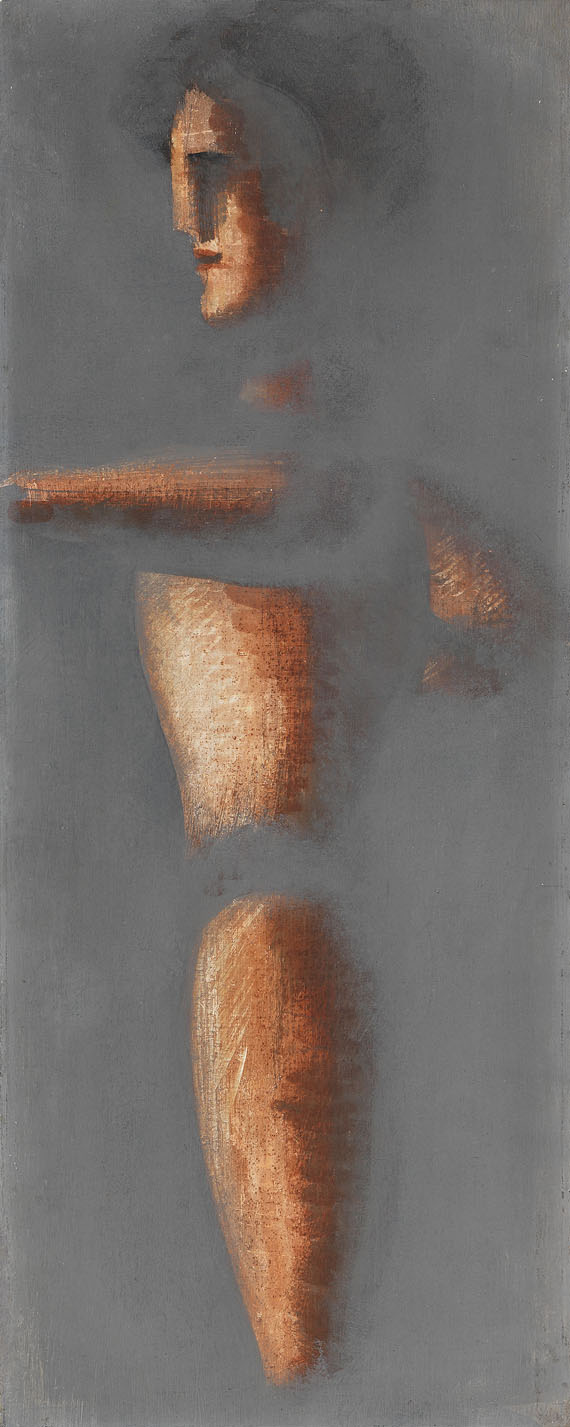Dictionary


Bauhaus
The architect Walter Gropius (1883-1969) founded the Bauhaus in Weimar on 1 April 1919 after the Saxon-Grand Ducal Art School and the Saxon-Grand Ducal School of Applied Art had been joined. The name Bauhaus originates from the medieval term "Bauhütte" (mason's lodge) and stands for the junction of fine art, applied art and crafts. Gropius himself was a member of the "Deutschen Werkbund" (German Work Federation), which was founded in 1907 and had the aim of establishing new functional style and to improve the quality of handcrafts. This reform idea had great influence on the concept of Bauhaus. The thorough training of craft skills was the basis of all art education for students at the Bauhaus. Students were referred to as apprentices and assistants and were accordingly taught by masters.
Walter Gropius proclaimed in the Bauhaus manifest from 1919 the superordinate idea of regarding a building as the highest aim and as a complete work of art: "The ultimate goal of all activities is the building structure! [...] Let us plan, develop and create a future structure that will be all in one: Architecture and sculpture and painting [...]." However, a building should also suit people's needs, so that architecture comprises the design of life processes."
In its history, being strongly influenced by political circumstances, the Bauhaus went through three different stages that were closely linked to the location on the one hand and the respective director on the other: Up until 1925, teaching took place at the Bauhaus in Weimar, from 1925 to 1932 in Dessau and finally in Berlin in 1932-33; Walter Gropius was director until 1928, followed by Hannes Meyer until 1930, Ludwig Mies van der Rohe held the chair until 1933.
The Bauhaus ideas were carried forth by former teachers and students even after it had been closed because of the National Socialists.
Important artists were Josef Albers, Marianne Brandt, Marcel Breuer, Lyonel Feininger, Johannes Itten, Wassily Kandinsky, Paul Klee, Gerhard Marcks, László Moholy-Nagy, Georg Muche, Oskar Schlemmer and Gunta Stölzl.
The architect Walter Gropius (1883-1969) founded the Bauhaus in Weimar on 1 April 1919 after the Saxon-Grand Ducal Art School and the Saxon-Grand Ducal School of Applied Art had been joined. The name Bauhaus originates from the medieval term "Bauhütte" (mason's lodge) and stands for the junction of fine art, applied art and crafts. Gropius himself was a member of the "Deutschen Werkbund" (German Work Federation), which was founded in 1907 and had the aim of establishing new functional style and to improve the quality of handcrafts. This reform idea had great influence on the concept of Bauhaus. The thorough training of craft skills was the basis of all art education for students at the Bauhaus. Students were referred to as apprentices and assistants and were accordingly taught by masters.
Walter Gropius proclaimed in the Bauhaus manifest from 1919 the superordinate idea of regarding a building as the highest aim and as a complete work of art: "The ultimate goal of all activities is the building structure! [...] Let us plan, develop and create a future structure that will be all in one: Architecture and sculpture and painting [...]." However, a building should also suit people's needs, so that architecture comprises the design of life processes."
In its history, being strongly influenced by political circumstances, the Bauhaus went through three different stages that were closely linked to the location on the one hand and the respective director on the other: Up until 1925, teaching took place at the Bauhaus in Weimar, from 1925 to 1932 in Dessau and finally in Berlin in 1932-33; Walter Gropius was director until 1928, followed by Hannes Meyer until 1930, Ludwig Mies van der Rohe held the chair until 1933.
The Bauhaus ideas were carried forth by former teachers and students even after it had been closed because of the National Socialists.
Important artists were Josef Albers, Marianne Brandt, Marcel Breuer, Lyonel Feininger, Johannes Itten, Wassily Kandinsky, Paul Klee, Gerhard Marcks, László Moholy-Nagy, Georg Muche, Oskar Schlemmer and Gunta Stölzl.
Offers
Headquarters
Joseph-Wild-Str. 18
81829 Munich
Phone: +49 89 55 244-0
Fax: +49 89 55 244-177
info@kettererkunst.de
Louisa von Saucken / Undine Schleifer
Holstenwall 5
20355 Hamburg
Phone: +49 40 37 49 61-0
Fax: +49 40 37 49 61-66
infohamburg@kettererkunst.de
Dr. Simone Wiechers / Nane Schlage
Fasanenstr. 70
10719 Berlin
Phone: +49 30 88 67 53-63
Fax: +49 30 88 67 56-43
infoberlin@kettererkunst.de
Cordula Lichtenberg
Gertrudenstraße 24-28
50667 Cologne
Phone: +49 221 510 908-15
infokoeln@kettererkunst.de
Hessen
Rhineland-Palatinate
Miriam Heß
Phone: +49 62 21 58 80-038
Fax: +49 62 21 58 80-595
infoheidelberg@kettererkunst.de
We will inform you in time.




